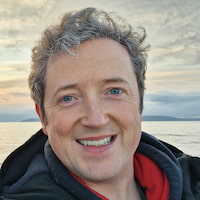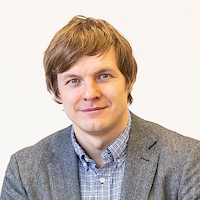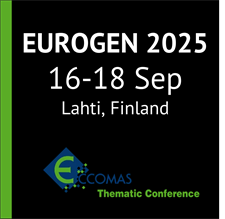events
CIMNE Seminar: "Designing conservative and accurately dissipative numerical integrators in time", by Dr. Patrick Farrell
📆 Monday, March 31, 2025
🕐 12:00 noon CET
📍 OCZ Conference Room, C1 Building, 1st floor (CIMNE), UPC Campus Nord
Online streaming
ABSTRACT
Numerical methods for the simulation of transient systems with structure-preserving properties are known to exhibit greater accuracy and physical reliability, in particular over long durations. These schemes are often built on powerful geometric ideas for broad classes of problems, such as Hamiltonian or reversible systems. However, there remain difficulties in devising higher-order-in-time structure-preserving discretizations for nonlinear problems, and in conserving non-polynomial invariants. In this work we propose a new, general framework for the construction of structure-preserving timesteppers via finite elements in time and the systematic introduction of auxiliary variables. The framework reduces to Gauss methods where those are structure-preserving, but extends to generate arbitrary-order structure-preserving schemes for nonlinear problems, and allows for the construction of schemes that conserve multiple higher-order invariants. We demonstrate the ideas by devising novel schemes that exactly conserve all known invariants of the Kepler and Kovalevskaya problems, arbitrary-order schemes for the compressible Navier-Stokes equations that conserve mass, momentum, and energy, and provably dissipate entropy, and energy-conservative schemes for the Benjamin-Bona-Mahony equation.
.jpg)
SPEAKER CV
 Dr. Patrick Farrell is a Professor in the numerical analysis group at the University of Oxford and (for 2025-2026) the Donatio Universitatis Carolinae Chair in the faculty of mathematics and physics at Charles University in Prague. His research interests in the numerical solution of partial differential equations. He obtained his bachelor’s degree in mathematics from the University of Galway, and his doctorate from Imperial College London in 2010; his doctoral thesis won the Roger Owen PhD thesis prize from the UK Association for Computational Mechanics, and the Janet Watson prize from Imperial. He has been awarded an EPSRC Early Career Research Fellowship (2013-2018), the 2015 Wilkinson Prize for Numerical Software, second place in the 2015 Leslie Fox Prize in Numerical Analysis, the 2021 Charles Broyden Prize in optimisation, and a 2021 Whitehead Prize from the London Mathematical Society.
Dr. Patrick Farrell is a Professor in the numerical analysis group at the University of Oxford and (for 2025-2026) the Donatio Universitatis Carolinae Chair in the faculty of mathematics and physics at Charles University in Prague. His research interests in the numerical solution of partial differential equations. He obtained his bachelor’s degree in mathematics from the University of Galway, and his doctorate from Imperial College London in 2010; his doctoral thesis won the Roger Owen PhD thesis prize from the UK Association for Computational Mechanics, and the Janet Watson prize from Imperial. He has been awarded an EPSRC Early Career Research Fellowship (2013-2018), the 2015 Wilkinson Prize for Numerical Software, second place in the 2015 Leslie Fox Prize in Numerical Analysis, the 2021 Charles Broyden Prize in optimisation, and a 2021 Whitehead Prize from the London Mathematical Society.





















